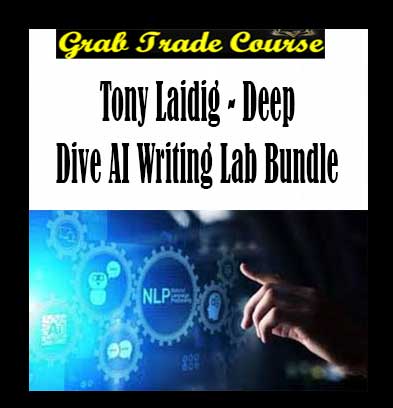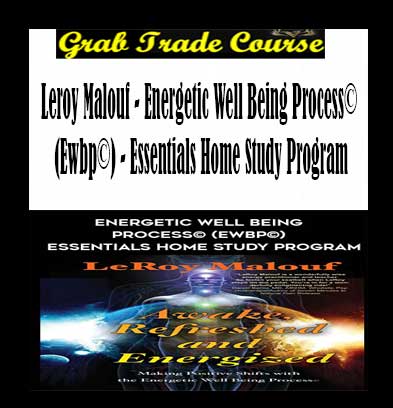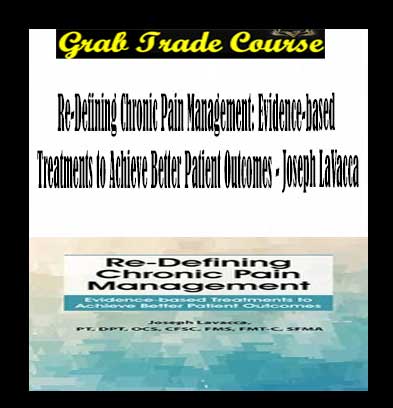Tony Laidig – Deep Dive AI Writing Lab Bundle
Description
Tony Laidig – Deep Dive AI Writing Lab Bundle review, Tony Laidig – Deep Dive AI Writing Lab Bundle download, Tony Laidig – Deep Dive AI Writing Lab Bundle free
Tony Laidig – Deep Dive AI Writing Lab Bundle
“Write Limitless, Original Books and Articles Using an Emerging AI-Technology SO Powerful, It Had to Be Approved By Congress!”
ZERO Writing Skills? No Problem!
When it comes to writing original books and articles, many people struggle with the process. I know I do! I find that the challenge for many takes on one of just a couple forms:
• Don’t know how to write.
• Don’t know what to write about.
• Don’t have the time to write.
Perhaps ALL THREE of these challenges are where you are…I get it!
Over the past few years, I’ve been tracking an emerging technology that has crazy implications to MANY different types of media creation, from art and music to video and WRITING! As a matter of fact, this AI-based technology is SO powerful, it’s developers had to meet with Congress TWICE to assure them that, while the AI technology COULD be used maliciously, the benefits would ultimately outweigh the negatives. This company EVEN delayed the release of the full dataset specifically due to internal concerns over misuse! It’s THAT powerful!
Here’s Why This Should Matter to YOU!
The Economist, The New York Times, and Wired all refer to data as the oil of the digital era. I tend to see it more as PURE GOLD…and the RUSH is on! So you might be wondering, “Is this technology good enough that an article or books would sound like a human wrote it?”
Good Question…
Believe or not, MOST news agencies and tech companies (all the biggest names) are ALREADY using this AI technology. For example, the Washington Post has published over 850 articles written using AI tech. Chase, Adobe and others are using it as well!
But What About Writing Books?
This year (2019) the National Novel Generation Month (NaNoGenMo) challenge has over 100 programmers and writers using AI technology to write 50,000+ word novels! And that’s just ONE example of many!
And in my latest Deep Dive, AI Writing Lab, I will reveal exactly HOW you TOO can do the SAME thing (no programming necessary)!
What We Cover in Deep Dive: AI Writing Lab…
Module 1: People, Prompts & Plots
Every story, whether fiction or non-fiction, needs a starting point. And while you can certainly create those yourself, there are ALSO fun ways to generate ideas you may not have considered!
Module 2: Generating Text Using AI
This is where to REAL fun begins! In Module 2 we will dive deep into 3 different AI writing programs to see how each one works and how they can best serve you in your writing endeavors.
Module 3: Fine-Tuning Your Results
As you would correctly imagine, while AI generated text is often really good, it also gets things wrong at times. We will look at multiple ways to update your results using some cool tech and common sense!
Here Are a Few Examples of AI-Generated Text…
Here Are 4 Examples of AI-Generated Text From My Own Experimenting!
Example 1
“We will never be the same,” said the young man who knew the secrets of the universe, who knew the stars as well as he knew his own name.
“But I don’t think we’re ever going to be the same,” said the old man.
In that moment, we all knew that it was time to go. We gathered our belongings together and left this world behind.
The wind howled and the moonlight danced as we all climbed aboard the ship.
As we rounded the horizon and flew into the night, the stars glimmered and the black of the space was upon us.
The ship rocked and tossed as we went into the night sky. I thought to myself, as my body trembled with every movement. “Is a dream…?”
The stars danced in the night sky when, all of a sudden, my world ended.
I found myself in a black void that wasn’t just the void I was in before. I could sense everything around me, but it wasn’t in any way like how I knew it was supposed to feel. There was nothing in front of me. There was nothing behind me. Nothing. Everything felt empty, and I was just sitting there. The void didn’t move, no matter how hard I tried to shake it. I felt a weight on my head. It was a strange feeling as if a light was going off above me, and I was just in the darkness waiting to be illuminated.
And then it happened. The darkness opened up. And I was HERE.
Example 2
When we think about life on earth in the distant past, we often think of the dinosaurs that ruled the day. However, this new discovery by a team of French and American palaeontologists has revealed that the first humans to live on the planet actually were part of a much more ancient community of early humans than previously known. According to a report in the Daily Mail, the fossils of the so-called “Homo floresiensis” (pronounced “flairs”) have been unearthed in the Altai Mountains of central Asia. They date back around 3.2 million years.
What’s more, they show that Homo floresiensis was at least as advanced technologically as our own species. “We didn’t know the true population size of our direct ancestors, because it was so small and we didn’t have the technology to extract fossils. If we had, we could tell them apart from the living things on the planet today,” says David Siegel, an evolutionary biologist at the University of Arizona and lead author of the study. The research, funded by the National Science Foundation, is detailed today in the journal Science Advances.
The study looked at what evolutionary biologists call “mitochondrial genomes”—the DNA inside cells’ organelles. Mitochondria are the battery that stores the energy and genetic information of a cell and provides energy for the cells’ many other functions. The researchers had previously found that people living today have two types of mitochondria.
While people living in the Amazon are a mix of these two types, they have two more mitochondria than people living in Europe or the United States, which may help explain why they live longer. While it isn’t clear how this relates to longevity, the study points out the importance of mitochondria to health.
Example 3
Alice and the White Rabbit had just discovered a new area of wonderland they didn’t know existed. But the new area wasn’t as big as the White Rabbit’s. If they’d gone through the White Rabbit’s tunnel, they wouldn’t have found all the things they found in Wonderland. But they had to.
They walked through the tunnel and then stopped. They took a look around and they saw… a man. Not just any man. No, the Man in the Yellow Hat.
This odd man had two heads. Two heads that were his and his twin. “Oh! I’m sorry,” said Alice. “But you’re going to have to come with us now.” The Man in the Yellow Hat and Alice walked down the path they’d just come through.
They took a few steps, and Alice put her head down.
“Alice?” the Man in the Yellow Hat asked.
“I’m not hungry,” she replied. “You must have brought something.”
“There is one thing that I can’t help you with. We’re going into the forest tonight,” the Man in the Yellow Hat said. “The only way we can get back is to kill the Forest.”
Example 4
Today, scientists confirmed the worst possible outcome: the massive asteroid could collide with Earth this Sunday, when it will pass by at about 7: 53 AM EDT (11:53 PM GMT) from our planet’s southern hemisphere. While the asteroid is likely to miss Earth entirely, it will still cause serious disruption to a wide swath of the planet’s population.
This is a rare and unpredictable event, but scientists say it is also one they’re prepared to deal with. “The asteroid impact is a huge event – it’s the biggest natural event that humans have ever witnessed,” said astronomer Matt Taylor, lead scientist for NASA’s Near- Earth Object Observations Program.
“We’ve seen a lot of large asteroids come close to Earth, but very few of them have caused significant impact ,” he continued. “These events will leave lasting and disruptive effects throughout the planet.”
“This is a major discovery that could significantly change the way scientists think about asteroids and other bodies that could impact Earth,” said Michael Kringa, a doctoral candidate in planetary geology at the University of Arizona.
Our Policies
A. Product Quality
We will provide GOOD quality of courses fast. If any issue, email: [email protected].
We sure that your problem will be support as soon as possible.
B. Digital Shipping Proceess
After your payment, we will review your payment, Then, we will send you PCLOUD LINK OF COURSES through email in 3 – 8 hours. If any issue, we will inform you as soon as possible.









Reviews
There are no reviews yet.